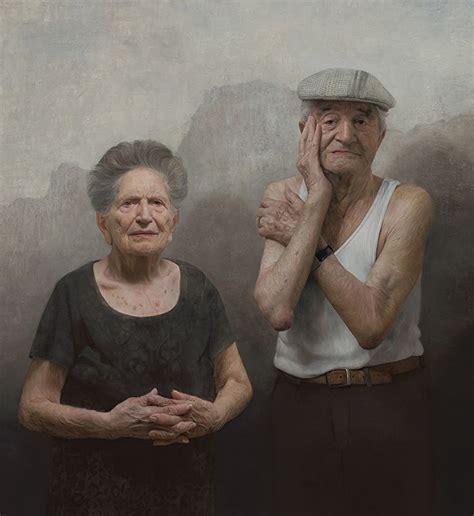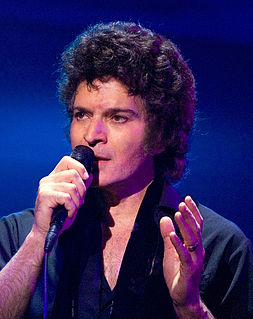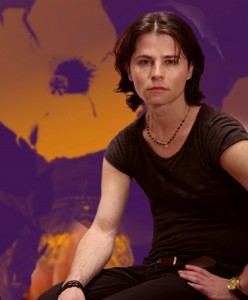A Quote by Kara Walker
I guess there was a little bit of a slight rebellion, maybe a little bit of a renegade desire that made me realize at some point in my adolescence that I really liked pictures that told stories of things - genre paintings, historical paintings - the sort of derivatives we get in contemporary society.
Related Quotes
People see so many things in the paintings. Although I never think of them, it charms me a little bit that people actually project actual scenarios on to the paintings. Hopefully that means that they have a little bit of life to them. Figuring out the rhythm, the structural element has been the key thing in this work, more than the color element. It really was the variety of different widths that lead to a certain movement, a rhythm. Otherwise I'd fall into anything that was too stripy or almost like bar codes, and it thwarted the natural flow of the painting.
I sort of feel that the role of a portrait in society is to represent the sitters, we see paintings of Shakespeare and we believe that it is what he looked like, well maybe a little older, fatter and with a higher hairline. I guess it would be cool if the portraits that were painted really did look like the sitter or expressed some sort of emotion that gave the viewers in the future a sense of the sitter's pathos at the time it was painted.
There's something about the sci-fi genre that gets an audience interested in it, so maybe you can take some risks that you couldn't, if you were just doing a drama. It lets you maybe reach a little further and surprise people a little bit more because there's still that little safety base of working on that genre that everybody loves.
I always try to bring a little bit of my own personality to the character, or some sort of personal connection makes it a little bit more of an organic portrayal and the audience can kind of maybe believe it a little bit more. But I always look for something to kind of connect with and identify with, or bring something of myself to the table.
My paintings used to be so realistic and I found it a little bit boring, especially now that I'm in New York. I wanted to be more free, first in my mind and then, slowly, in my work. Many artists have these jumps in their work and at some point it looks like a supermarket. For me it was important to develop.
There are a lot of people that have marginal powers, like a guy who levitates a little bit off the ground, or someone who can breathe a little bit of fire, or someone that can freeze a little bit of something, if it's really close to him, you say, "Well, what do you do with that? How is that useful?" There is so much of it around you and you're seeing it, it becomes the important thing in society.
Having that little bit of breathing room to work, and not feeling like it's going to fall apart at any second, has allowed me to recover the feeling I had when I was a little kid, when I was writing stories for fun or drawing pictures for my parents to put on their refrigerator. It was about playing and doing something fun, and kind of making your own little world. And that's how art should feel for me, and how having a little bit more distance between my ass and the ground has helped me.
I pay my models to work with me, so there becomes this weird sort of economic bartering thing, which made me feel really sort of uncomfortable, almost as though you were buying into a situation - which, again, is another way of looking at those paintings. The body language in those paintings is a lot more stiff.







































